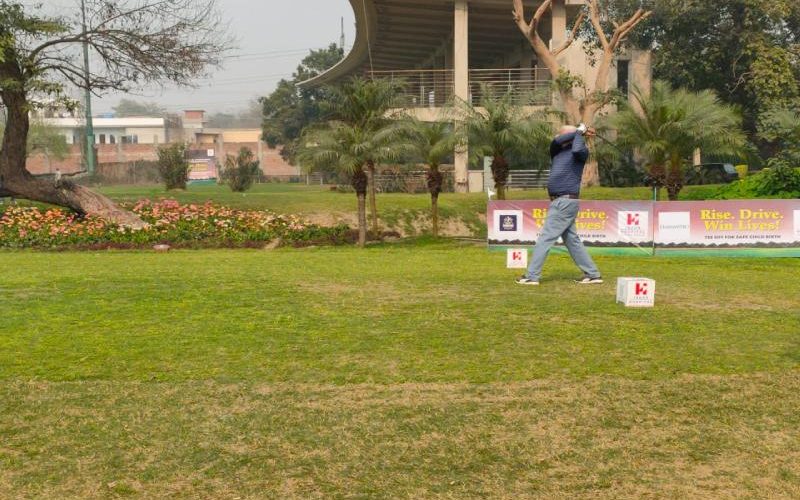INDUS HOSPITAL AND HEALTH NETWORK HOSTS ANNUAL GOLF TOURNAMENT IN LAHORE
100 golfers participated in 18 holes of individual Stableford game of golf at the Royal Palm Golf & Country Club on February 21, 2021, to raise funds to build Indus Hospital and Health Network’s (IHHN) QF-NST (Qarshi Foundation and Naimat Saleem Trust) campus in Lahore.
Like last year, this year golfers gathered to play to help build the QF-NST Campus to reach out to even more people in Punjab.
IHHN expanded into Punjab in 2014 leading a substantial growth in its healthcare facilities. The need for expansion into the second-largest province in Pakistan came at the heels of the ever-expanding need for quality healthcare in the country.
Today the Network manages seven healthcare facilities in Punjab which includes government hospitals operated by the Network under the Public-Private Partnership.
The main objective of the QF-NST Campus is to provide quality healthcare absolutely free to the deprived class of the society without any discrimination.
The 600-bed teaching hospital is located at Jubilee Town. It is established to cater to the escalating demand of free-of-cost and quality healthcare service in the province.
The total estimated covered area of the project is 0.93 million square feet, while the total estimated cost of the project is Rs.10.5 billion.
The hospital is expected to serve more than one million patients annually once operational and will have all the facilities such as Oncology, Endoscopy, Gynecology, Cardiology, Dialysis center, Diagnostic Imaging, Accident & Emergency, etc.
The hospital also includes the Medical College, College of Eastern Medicine Dental College, College of Paramedics and Allied Sciences, College of Nursing, hostels, Islamic Center comprising a mosque, and a multi-faith center.
At the end of the event, Dr. Abdul Bari Khan, CEO, Indus Hospital and Health Network thanked the golfers, sponsors, and volunteers who with their generosity helped make the tournament an exciting and successful fundraising event.
Bridging the gap between the IHHN’s work and the golfing community, the event provided a networking opportunity to the golfing community and to further the cause of the Indus Hospital and Health Network.
Winner in Ladies was Minha Zainab, while runner-up was Tehmina Ahmed. From category 0-14, the winner was Shahid Abbas. Runner-up was Asim Tiwana while second runner-up was Shoaib Shams.
Naveena Steel was the title sponsor of the event and ARY Digital was the exclusive media partner. PSL 2019 winners Quetta Gladiators were the CSR partners.
Indus Hospital and Health Network
Initiated by a group of professionals with the support of some philanthropists and businessmen, in 2007, The Indus Hospital started its journey with a purpose to provide indiscriminate, quality healthcare to all in a state-of-the-art, paperless, 150-bed hospital in Korangi, Karachi.
The Hospital has now evolved into the Indus Hospital and Health Network which is managing 12 hospitals across Pakistan. The Network also has a country-wide network of primary care clinics and outreach programs.
The Indus Hospital, Korangi Campus, Karachi is being expanded to a 1,350-bed facility while a state-of-the-art, 600-bed tertiary care hospital is being constructed in Lahore. Both hospitals are associated with the Indus University of Health Sciences.
IHHN is running four physical and rehabilitation centers in Karachi, Lahore, Muzaffargarh, and Badin. The hi-tech blood center of IHHN has four regional blood centers in Multan, Bahawalpur, Jamshoro, and Karachi.




